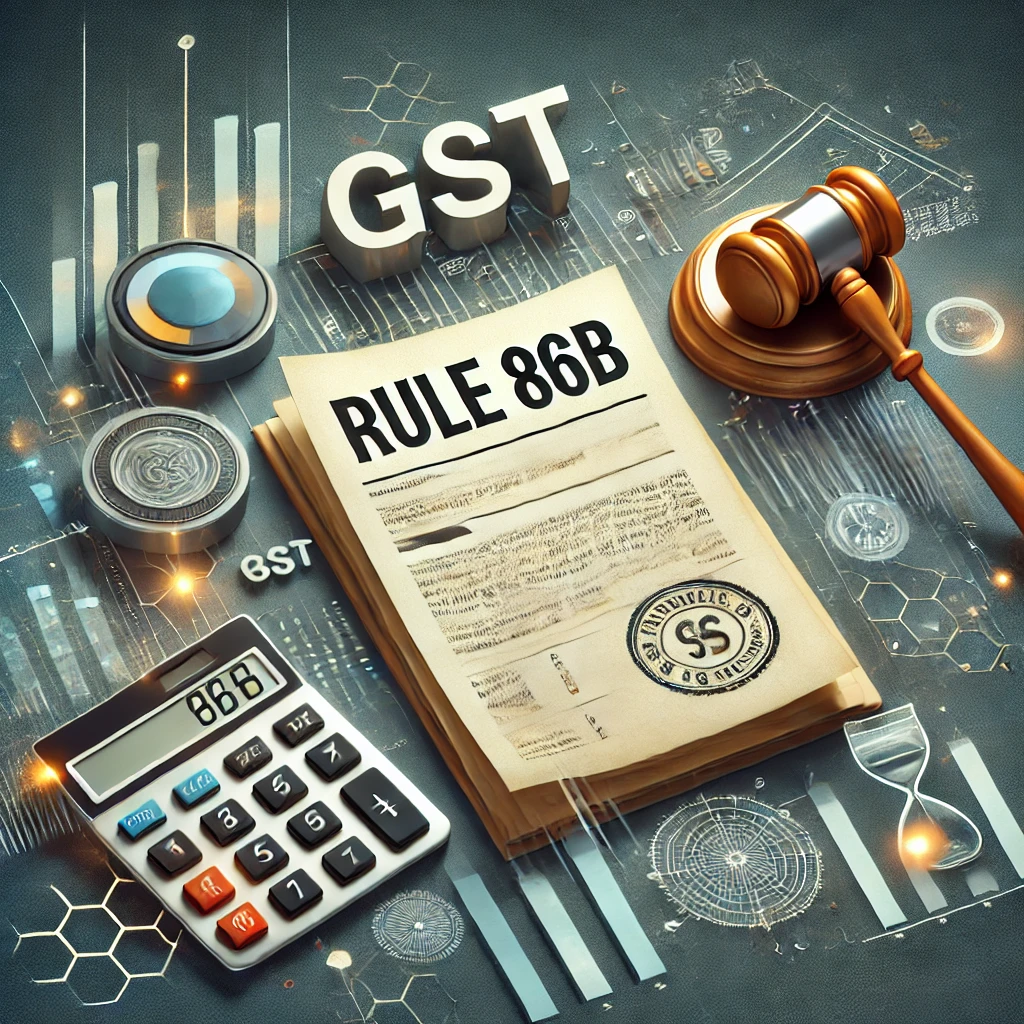Introduction
As GST compliance continues to evolve, taxpayers and finance professionals must prepare for a wave of significant changes taking effect from July 2025. These new updates, recently introduced by the GST Network (GSTN) and backed by Central Board of Indirect Taxes and Customs (CBIC) notifications, aim to tighten compliance, streamline reporting, and reduce discrepancies in GST returns.
Here’s a comprehensive look at the three most impactful changes you need to act on starting July 2025.
Hard Locking of Auto-Populated Values in GSTR-3B
What’s Changing?
From the July 2025 tax period onwards, GSTR-3B will no longer allow edits to the values auto-populated in Table 3 (outward supplies and tax liabilities). These values are drawn directly from:
- GSTR-1
- GSTR-1A (for amendments)
- IFF (for QRMP taxpayers)
Until the June 2025 return cycle, taxpayers had the flexibility to adjust these values before filing. That ends with the July return (due in August), marking a critical shift in how businesses must manage their sales reporting and corrections.
What You Should Do
- Amendments or corrections to invoices and tax liability must now be done through GSTR-1A, before filing GSTR-3B.
- Ensure your outward supply records are accurate and validated well in advance.
- Monitor buyer rejections and mismatches via your Invoice Management System (IMS) and respond swiftly in GSTR-1A.
GST Return Filing Now Time-Barred After 3 Years
What’s Changing?
Effective July 2025, the GST portal will enforce a hard deadline of three years from the due date for filing various GST returns. This move operationalizes the rule notified via CGST Notification No. 28/2023, earlier effective from October 1, 2023, but now fully implemented on the GSTN portal.
Returns Covered Under 3-Year Limit
- GSTR-1 – Details of outward supplies
- GSTR-3B – Monthly/quarterly summary return
- GSTR-4, GSTR-5, GSTR-5A, GSTR-6, GSTR-7, GSTR-8, GSTR-9 – Other annual/periodic returns
Impact due to CGST Notification No. 28/2023
Even Nil returns will be barred from filing post the three-year deadline, which could lead to:
- GSTN portal restrictions
- Delays in input tax credit flow
- Notices and penalties for non-compliance
Launch of e-Way Bill Portal 2.0
What’s New?
To improve speed, redundancy, and efficiency in logistics compliance, the National Informatics Centre (NIC) will roll out a second e-way bill portal from July 1, 2025 (https://ewaybill2.gst.gov.in/)
This new portal aims to:
- Reduce dependence on a single e-way bill platform
- Enable real-time synchronisation of e-way bill data with the GST portal
- Offer better uptime and load balancing during peak periods
How Will This Affect Different Taxpayers?
Monthly Filers (Regular Taxpayers)
- Must adopt robust reconciliation practices and use GSTR-1A effectively for corrections.
- Can no longer make ad hoc changes in GSTR-3B to match books—data must match from the source.
- Consider implementing GL-to-GST integration solutions (e.g., Clear’s GL-Stream) to automate and align sales and tax ledgers.
QRMP Scheme Taxpayers
- GSTR-3B for the quarter will be auto-filled with IFF data from months 1 and 2 + GSTR-1 from month 3.
- Use GSTR-1A to rectify errors for the entire quarter before filing GSTR-3B.
- Regularly check for invoice mismatches and resolve them within the same quarter.
This rule change does not affect those under the composition scheme, who continue to follow a separate return process.
Immediate Action Plan for July 2025
1. Reconcile Early – Match GSTR-1 and IFF data with your sales register and e-invoice records before GSTR-3B auto-population.
2. Use GSTR-1A for Corrections – No manual edits in GSTR-3B. Use GSTR-1A to amend outward supply data before submission.
3. Strengthen Internal Controls – Build a robust invoice management system to reduce rejections, mismatches, and non-compliance risks.
4. File Overdue Returns Immediately – Returns older than 3 years from the due date will be permanently locked. Act now to avoid regulatory roadblocks.
5. Train Your Team – Educate your finance and compliance staff about these changes to ensure smooth transition and timely filing.
Final Thoughts
The July 2025 GST return filing rule changes mark a transformational shift in India’s indirect tax landscape, placing a stronger emphasis on data integrity, automation, and timeliness. Whether you are a small business or a large enterprise, proactive readiness is non-negotiable. With e-way bill portal upgrades, tighter GSTR-3B controls, and strict timelines on return filing, businesses must invest in the right technology and streamline their compliance processes to stay ahead of the curve.
Frequently Asked Questions (FAQs)
1. What happens if I miss filing a GST return within 3 years from its due date?
If a GST return remains unfiled for three years from its due date, the taxpayer will be permanently barred from filing it. This non-compliance can block the filing of subsequent returns and may even trigger the cancellation of the taxpayer’s GST registration.
2. What are the legal implications of failing to file GST returns for a period exceeding three years?
Failure to file GST returns for over three years can lead to significant legal consequences, including penalties of up to 10% of the tax due (with a minimum of ₹10,000), interest at 18% per annum, cancellation of GST registration, and prosecution in cases of wilful default or fraud.
3. What happens to Input Tax Credit (ITC) if I fail to file GST returns within the time limit?
If GST returns are not filed within the prescribed time frame, you will lose eligibility to claim the Input Tax Credit (ITC) on corresponding purchases. Since the supplier’s invoices remain unverified in the system, the ITC gets blocked, directly increasing your tax liability. Timely return filing is essential to ensure seamless credit flow and avoid financial setbacks.
4. What happens if my GSTIN is cancelled due to non-filing of returns?
If your GST registration is cancelled due to prolonged non-filing, you will not be able to make taxable supplies legally. You may also face demands for unpaid taxes, penalties, and will need to apply for revocation or re-registration, subject to scrutiny.
About the Author
📢 Now Offering Professional Tax Services!
We’re excited to announce the launch of our new Tax Services section! Whether it’s income tax filing, GST return support, or other compliance solutions, we’re here to help individuals, businesses, and NRIs navigate Indian tax systems with ease.
👉 Explore Our Tax Services

